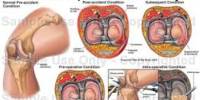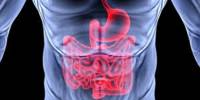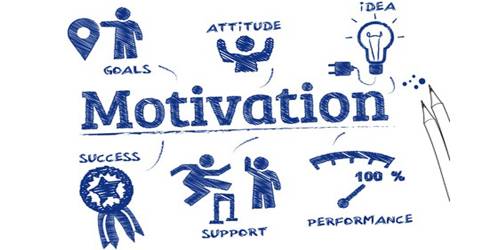Caffeine, the most widely consumed psychoactive substance in the world, is the best known ingredient of coffee. Caffeine is chemically known as 1,3,7-trimrthylxanthine. Its beneficial effects on the human body has been researched quite well, but coffee as a whole is a complex beverage with a thousand different substances. Some studies argue that decaf and caffeinated coffee may have the same health effects and suggest that it’s not the caffeine that is responsible for most of coffee’s health benefits.
Many health experts recommend a maximum of three cups of coffee to be consumed in a day. More than three cups may lead to sleeplessness. Studies have shown that there is a possibility for dependence. Caffeine-dependent individuals may experience headache, muscle pain and fatigue once the dependence is arrested.
Since it has been proven that caffeine has no nutritional value, it is also not advised to be given to children because it can suppress their appetite.
Health Benefits of Caffeine –
Caffeine has the ability to do the following:
- Increases the effect of pain killers
- Increases metabolism by breaking down fats
- Increases muscle strength
- Benefits people who have high risk of liver diseases
- Reduces asthma symptoms
Based on recent studies, there are other beneficial uses of caffeine, dramatically changing how people see it as just an ordinary morning stimulant.
- Coffee lowers risk of death. Studies have shown that coffee drinker’s overall risk of premature death is 25% lower than of those who don’t drink coffee.
- Coffee reduces risk of cancers. One study has shown that coffee may decrease the risk of developing prostate cancer in men by 20 %, and endometrial cancer in women by 25 %. People in the test group drank four cups of coffee a day. Caffeine may also prevent developing of basal cell carcinoma, the most common type of skin cancer
- Coffee reduces risk of stroke. Reasonable consumption of coffee (2–4 cups a day) is associated with lower risk of stroke.
- Coffee reduces risk of Parkinson’s disease. Studies have shown that regular coffee drinking decreases risk of Parkinson’s disease by 25 %. There’s evidence that coffee causes activity in the part of the brain affected by Parkinson’s.
- Coffee protects our body and boosts our physical performance. Coffee contains a lot of antioxidants that work as little warriors fighting and protecting against free radicals within our body. Have a cup of black coffee about an hour before workout and our performance can improve by 11-12%. Caffeine increases adrenaline levels in our blood. Adrenaline is our body’s “fight or flight” hormone which helps us to prepare for physical exertion.
- Coffee reduces risk of Gallstone Prevention. About 25 percent of people who consume 4 cups of coffee in a day have lower risk of having gallstones.
- Coffee reduces risk of Depression Prevention. Women who consumed 2 to 3 cups of coffee are 15 percent less likely to develop depression.
- Improvement in Memory of drink coffee. Women aged 65 and above who drank three cups of coffee a day performed better on memory tests than those who downed only one cup in a day.
- Coffee may help us lose weight and burn fat. Coffee contains magnesium and potassium, which helps the human body use insulin, regulating blood sugar levels and reducing our craving for sugary treats and snacks. Caffeine helps fat cells break down body fat and use it as fuel for training.
- Coffee may lower risk of Type II diabetes. Caffeine decreases our insulin sensitivity and impairs glucose tolerance, therefore reduces our risk of type 2 diabetes.
Coffee protects our brain and brightens our mood, helps fight depression and lowers risk of suicide. High caffeine levels in our blood reduce the risk of Alzheimer disease. It also lowers risk of dementia. Caffeine stimulates the central nervous system and boosts production of neurotransmitters like serotonin, dopamine, and noradrenaline, which elevate our mood. Two cups of coffee a day prevents risk of suicide by 50 %.
Disadvantages of Caffeine –
- Cardiovascular Problems – Approximately 4 cups of coffee or a beverage with equivalent amounts of caffeine can raise blood pressure for many hours. The measured blood pressure levels are associated with increased risk of cardiovascular disease.
- Stress – Caffeine consumption in the early morning affects the body until bedtime, amplifying stress levels throughout the day. Caffeine increases stress hormones and elevates one’s perception of stress. Decreasing coffee and caffeinated beverages will help to lower often exaggerated stress-reactions.
- Blood Sugar Swings – Type 2 diabetics should be aware that caffeine may potentially impair insulin’s action, causing a detectable rise in blood sugar levels. Approximately 2 to 2 ½ cups per day may cause this effect.
- Emotional Disturbances – When more than 2g. of caffeine enters the body, the heart becomes stimulated and blood vessels dilate. Shortly after, blood pressure increases, causing bronchial relaxation in the lungs and increased breathing. These physiological reactions tend to cause irritability, restlessness, insomnia, and agitation.
- Male and Female Health Problems – Research shows that men can significantly reduce their risk for urinary and prostate problems by making dietary changes, which include eliminating coffee and caffeine. Fibrocystic breast disease, PMS, osteoporosis, infertility problems, miscarriage, low birth weight and menopausal problems, such as hot flashes, are all exacerbated by caffeine consumption. Women on birth control pills are particularly at risk since they tend to have a decreased ability to detoxify caffeine.
- Coffee can cause insomnia and restlessness. Again, it’s the caffeine working here. Our recommended maximum amount of caffeine is 400 milligrams, roughly the amount that you’ll get from 4 cups of coffee. If we are caffeine-sensitive, be careful with coffee. We are probably already aware what amount and what kind of coffee suits, or doesn’t suit us. The amount of caffeine that is safe for human consumption is actually written in our DNA.
Don’t drink more than one cup a day if you’re pregnant. Studies on coffee’s effect on a fetus have been controversial, but one thing is sure: if you drink coffee when pregnant, caffeine will also reach the fetus, and your baby is highly sensitive to caffeine. So, if you’re a heavyweight coffee drinker and can’t stop drinking it while pregnant, at least reduce your coffee intake to one cup a day.
Coffee for kids, may increase bedwetting. One survey reported that caffeine consumption of 5-7 year old kids may increase enuresis a.k.a. bedwetting.
Excessive caffeine intake may also affect fertility as it reduces muscle activity in a woman’s tubes. A 2011 study by the British Journal of Pharmacology was featured in livestrong.com, which said that “caffeine also can increase pregnancy complications because it crosses the placenta and reaches the fetus. Because the fetus has an immature metabolism, caffeine may linger in its system and build up to toxic levels.” Therefore, caffeine increases the risk of miscarriage and a low birth weight of newborn babies.
For others, reasonable amounts (1-6 cups a day) coffee can be good for us. It can prevent serious diseases, boost our mind and muscles, and even help us with weight loss. Remember, as long as we drink toxin free, speciality coffee and brew it with care, we can and should be enjoying it knowing it’s good for us.
Information Sources:
















